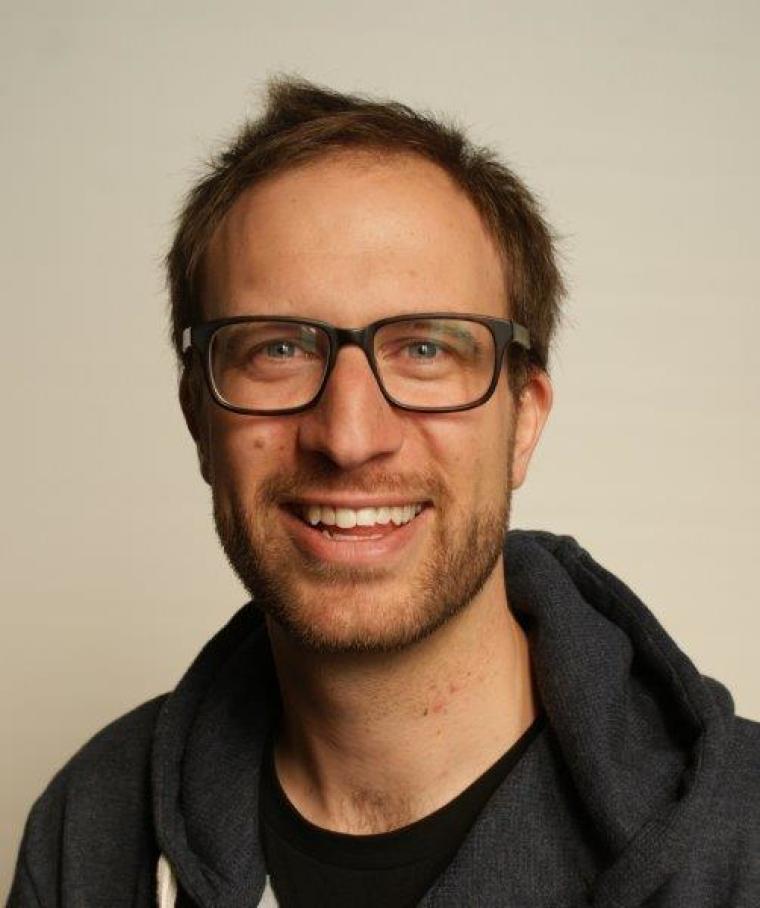

I can remember the day clearly; a bubbly and vivacious character walked onto the stage wearing bright green pants and hair the same colour as a packet of cherry ripe. She was animated and full of hope. Instantly there was a groan amongst the large, corporate audience; she was optimistic and enthusiastic.
She described herself as an innovation consultant and proceeded to give a demonstration of the type of work she did. She got half of the audience to stand up and face the back wall for 30 seconds, while the other half stood up and stared at an image projected on the front wall. I was one of the 200 people in the second group, staring at the image like a lab rat.
We then swapped roles and the other group of 200 had their turn to face the front—but with a different image—while we faced the back wall like a pack of blank statues.
She gave us 10 minutes to come up with an innovative brand name for a new chocolate bar—one without sugar, fat or anything detrimental to our health, while still being tasty and inexpensive. When the time reached its conclusion we were told to yell out our suggestions and ideas for possible brand names or taglines for this miracle bar of chocolate.
The results were incredible.
My half of the room had come up with barely a scratch, and there was a real struggle to get anyone to call out the results of their brainstorming—not to mention that any possibilities seemed sterile, linear and unimaginative.
When it was the other side's turn to call out suggestions you couldn't shut them up. Not only were they fighting for the chance, but they were coming up with names that any business would have paid plenty of money for the chance to use. There were several times that the whole audience responded with an "Ooooh" and a round of applause, before another suggestion trumped that idea and the response from the crowd was even louder and more appreciative.
The presenter told us that organisations around the world were having brainstorming meetings without doing any warm up activities or allowing the creative side of the brain to switch on and yet she had just demonstrated how a simple exercise for thirty seconds had enabled vastly different results.
I was mesmerised. I felt like I had finally found the solution for creativity, the silver bullet that would prevent future brainstorming sessions being a drag, a bore and unproductive.
Almost as if reading my mind, this same presenter told us that she had written a book called The Creativity Formula, noting that a lot of people were eager to know the shortcuts and magic steps that it takes to come up with innovation and creativity, and those "one in a million" ideas.
It was as if people were searching for the answer.
When words fall short
Shane Hipps describes being a chaplain in a hospital when a young person was diagnosed with a tumour and given a short amount of time left to live. Apart from the doctor, he was the only non-family member in the room and felt an incredible amount of responsibility for his response.
But he was dumbstruck. He didn't have "the answer" for why this had happened, nor had any magic formula to make it go away, and instead just sat there in silence with her. He wished for the right words so that he wouldn't appear unknowing or admit his own fallibility.
At the time the young person was hoping for all mysteries to be solved, but later the truth was that the young person appreciated someone being there and engaged in the situation, while wholeheartedly present.
Shane reflected that the same cannot be achieved through technology, "there's something unbelievably powerful about presence that no amount of mediated communication could ever hope or dream to convey," that which is a human experience.
Being present can be comforting and reassuring, even if no words are said. It is not as if you can send a blank email or a text message with just a few spaces and convey the same thing as being present. How ridiculous would that come across?
Shane continued, "There is a specific reason that the Word became flesh and dwelled among us... that God took dirt and breathed into it and made us... that we are not just ethereal spirits that float around the world. Your presence matters. Your capacity to be here now is enormous."
Life's answer
For the last two years I have found myself interacting with people who are coming to know first-hand how fragile life can be—stumbling through unbelievable loss or heartache— and wishing they had "the answer" or the right knowledge and insight on how to handle it all.
Other people I know are experiencing incredible frustrations, whether troubles with the justice system, exasperations with difficult people or simply experiencing the magnificent highs and seemingly frustrating lows of raising children.
A lot of people want a magic solution to appear before them when they cannot see a way forward or they find themselves in a situation too overwhelming to carry. It's as if they want a hidden answer, just needing to be discovered, which will reveal a solution, heal the current wound and start to make everything better again.
A possible response
The two different images the innovation consultant showed the corporate audience that day were remarkably similar, but with one obvious difference. The first chart (that had produced such linear results) was simply a black and white grid, marked with horizontal and vertical black lines on a simple white background. The second chart was exactly the same, but with a single off-centre red dot that apparently allowed the creative side of the brain to see another world of possibilities.
Something so simple and so easy makes it almost feel like a rip-off that such staggeringly different results were produced.
And yet I wonder if all that people need for the situation in front of them is a little tweak of what they're looking at, in order to have a completely different view on the possibilities of life. It seems to be so easy to get caught up in problems that we start comparing our lives to other situations—whether possibilities, expectations or other people—or spending time worrying and fretting, rather than remembering to be loving.
Jesus said that the two greatest commandments are to love God with all your heart, soul, mind and strength and to love your neighbour as yourself. Perhaps the essence of life is not boiled down to all the things that too often cloud our vision, but to how much we allow love to define our lives in order that we might be present for those around us.
Michael Frost wondered if all the buildings and programmes and accoutrements of church had made living a life of love harder than it should be. "Is it possible that it could be that simple [to be the 'best darn friend' people have ever had]?"
Love has so often been talked about, sung about and deeply dissected that it's almost become an overused word and moved even beyond cliché. Yet when life presents us with overwhelming obstacles it's hard to know how to take the next step, let alone how to hold a good perspective about ourselves, God and those around us.
I'm not saying that love is all you need, or that it's "the answer" to life's hidden mysteries, but I sure know it's a damn good place to start. It might just be the off-centre red dot we all need to see the new possibilities that exist before us.
Matt Browning is a storyteller and lover of ideas. He has a food caravan for youth unemployment called Shake Up, and recently made an app called Show Me, for people to find out what to do in Rotorua, New Zealand.
Matt Browning's previous articles may be viewed at www.pressserviceinternational.org/matt-browning.html